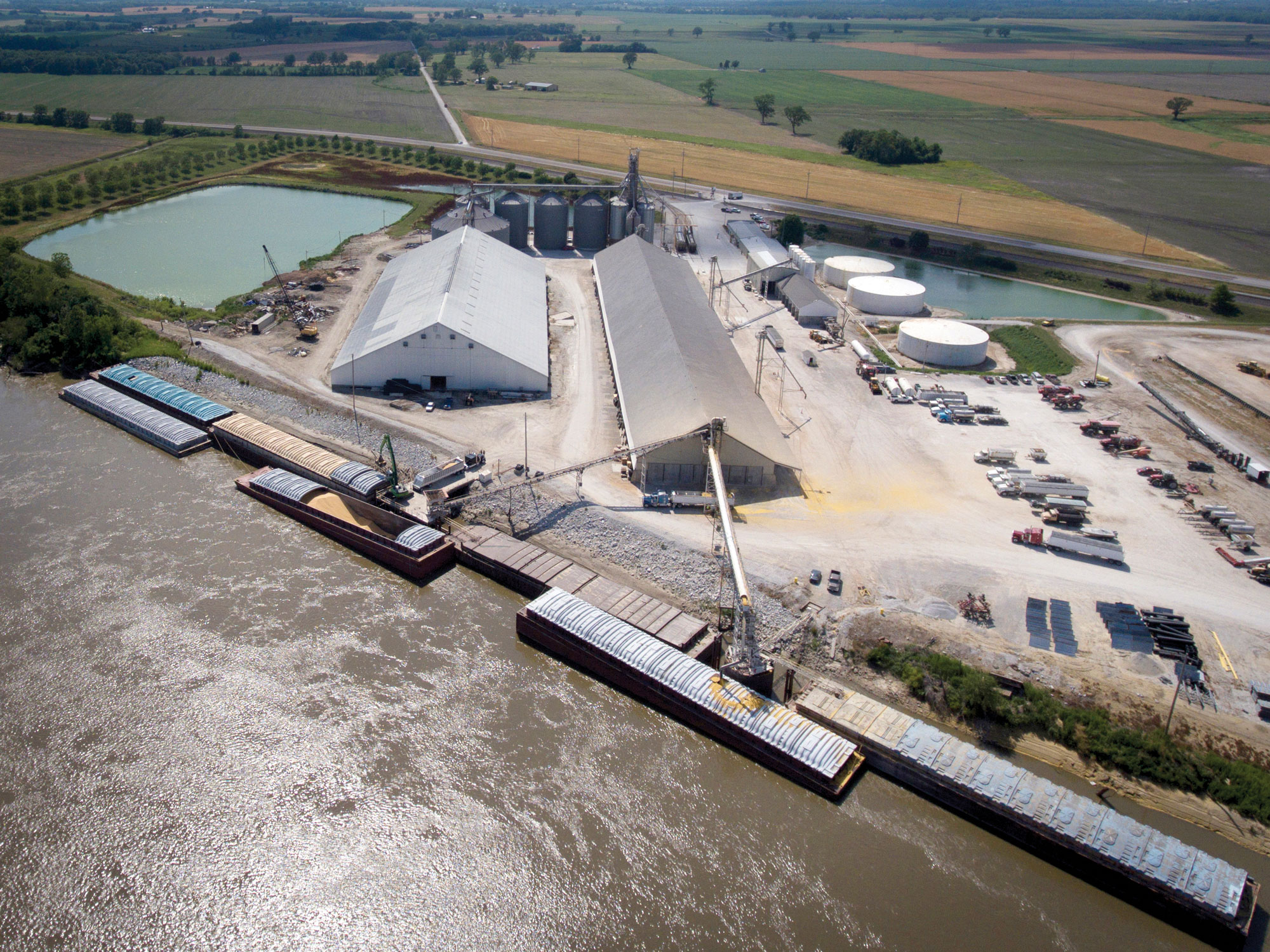
River Transport Provides Competitive Service for Farmers
July 10, 2017
Written By Adam Buckallew
Traditionally, wholesale suppliers of fertilizer, grain and feed rely on two modes of freight transportation: rail and truck. However, suppliers like AGRIServices of Brunswick (ASB) in north central Missouri have found a third option is highly valuable: river barges.
The Mississippi River watershed, which comprises the Arkansas, Missouri, Mississippi and Ohio rivers, annually transports $54 billion of agricultural products. Bill Jackson, general manager of ASB, says having the ability to export grain via barges creates competition among the three transportation modes, which helps to improve pricing for farmers.
River transport has been the most efficient way to ship product for ASB, a customer of MFA Oil, in the past 24 months.
With 8,600 miles of navigable waterway in the Mississippi River watershed, the U.S. inland waterway system is a key advantage in shipping grain domestically as well as internationally by connecting to ports in the Gulf of Mexico.
“Grain is transported much more quickly into domestic and international markets using barges,” Jackson said. ASB has exported between 5 million and 6 million bushels of corn, soybean and feed on 100 outbound barges in the past year. A single barge can hold the equivalent of 70 truckloads of grain or about 58,300 bushels.
“Approximately one-third of our freight comes through barges,” Jackson said. “We hope to double the number of loads we currently receive and export using river traffic.”
Such an expansion would continue to dispense grain into markets quicker and ensure transportation prices remain competitive.

